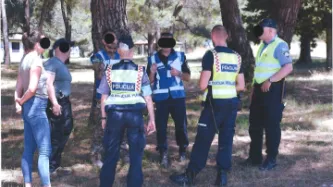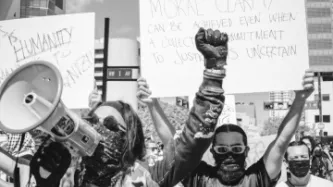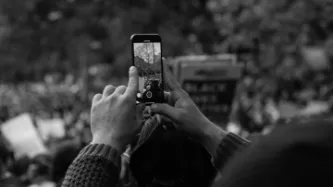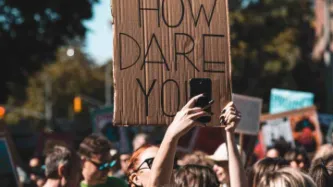Search
Content type: Long Read
Tucked away in a discrete side street in Hungary’s capital, the European Union Agency for Law Enforcement Training (CEPOL) has since 2006 operated as an official EU agency responsible for developing, implementing, and coordinating training for law enforcement officials from across EU and non-EU countries.
Providing training to some 29,000 officials in 2018 alone, it has seen its budget rocket from €5 million in 2006 to over €9.3 million in 2019, and offers courses in everything from…
Content type: Long Read
The European Union (EU) is the world’s largest donor of development aid, an instrumental supporter of democracies and peace around the world, and a powerful global force for reigning-in big tech and other exploitative industries. But since the 2015 migration crisis and with populist anti-immigration parties in power across the Union, it has focused this immensely powerful influence abroad squarely on managing flows of migration: using its economic, diplomatic, and security might to…
Content type: News & Analysis
At a time where the mass surveillance of protests has been at the forefront, the UN High Commissioner for Human Rights released a timely report on the impact of new technologies on the promotion and protection of human rights in the context of assemblies, including peaceful protests.
The new report highlights the strong ties between protest and privacy and warns that “…the use of some such technologies to surveil or crack down on protesters can lead to human rights violations, including…
Content type: Case Study
Facial recognition technology (FRT) is fairly present in our daily lives, as an authentication method to unlock phones for example. Despite having useful applications, FRT can also be just another technology used by those in power to undermine our democracies and carry out mass surveillance. The biometric data collected by FRT can be as uniquely identifying as a fingerprint or DNA. The use of this technology by third parties, specially without your consent, violates your right to privacy.
The…
Content type: Explainer
The internet is filled with guides on how to file a Freedom of Information (FOI) request. Depending on the country you are in, it is likely that a local NGO – or your national freedom of information authority. – will have come up with one. The Global Investigative Journalism Network has an excellent list of FOI resources available in many countries across every continent. We really recommend you take a look at it; many of the FOI guides we love are in that repository.At PI we equally spend much…
Content type: Report
The majority of people today carry a mobile phone with them wherever they go, which they use to stay connected to the world. Yet an intrusive tool, known as an International Mobile Subscriber Identity catcher, or “IMSI catcher” is a form of surveillance equipment that enables governments and state authorities to conduct indiscriminate surveillance of mobile devices, and by extension, on users.
IMSI catchers can do much more than monitor and intercept mobile communications. Designed to imitate…
Content type: News & Analysis
IMSI catchers (or stingrays as they are known in the US) are one of the surveillance technologies that has come to the forefront again in the protests against police brutality and systemic racism that have been sparked by the murder of George Floyd on 25 May 2020.
An International Mobile Subscriber Identity catcher – in short an “IMSI catcher” – is an intrusive piece of technology that can be used to locate and track all mobile phones that are switched on in a certain area. It does so by…
Content type: Long Read
In December 2019, the Information Rights Tribunal issued two disappointing decisions refusing appeals brought by Privacy International (PI) against the UK Information Commissioner.
The appeals related to decisions by the Information Commissioner (IC), who is responsible for the UK’s Freedom of Information regime, concerning responses by the Police and Crime Commissioner for Warwickshire and the Commissioner of Police for the Metropolis (The Metropolitan Police) to PI’s freedom of information…
Content type: Case Study
IMSI catchers – International Mobile Subscriber Identity catchers – are a particularly intrusive technology being used by police to monitor protesters and intercept their personal information and communications.
IMSI catchers have been used - officially or in secret - across the globe to monitor protests, including in the US and Germany; in the UK, police forces have refused to disclose any information on their use but documents obtained by the Bristol cable show that nine police forces have…








